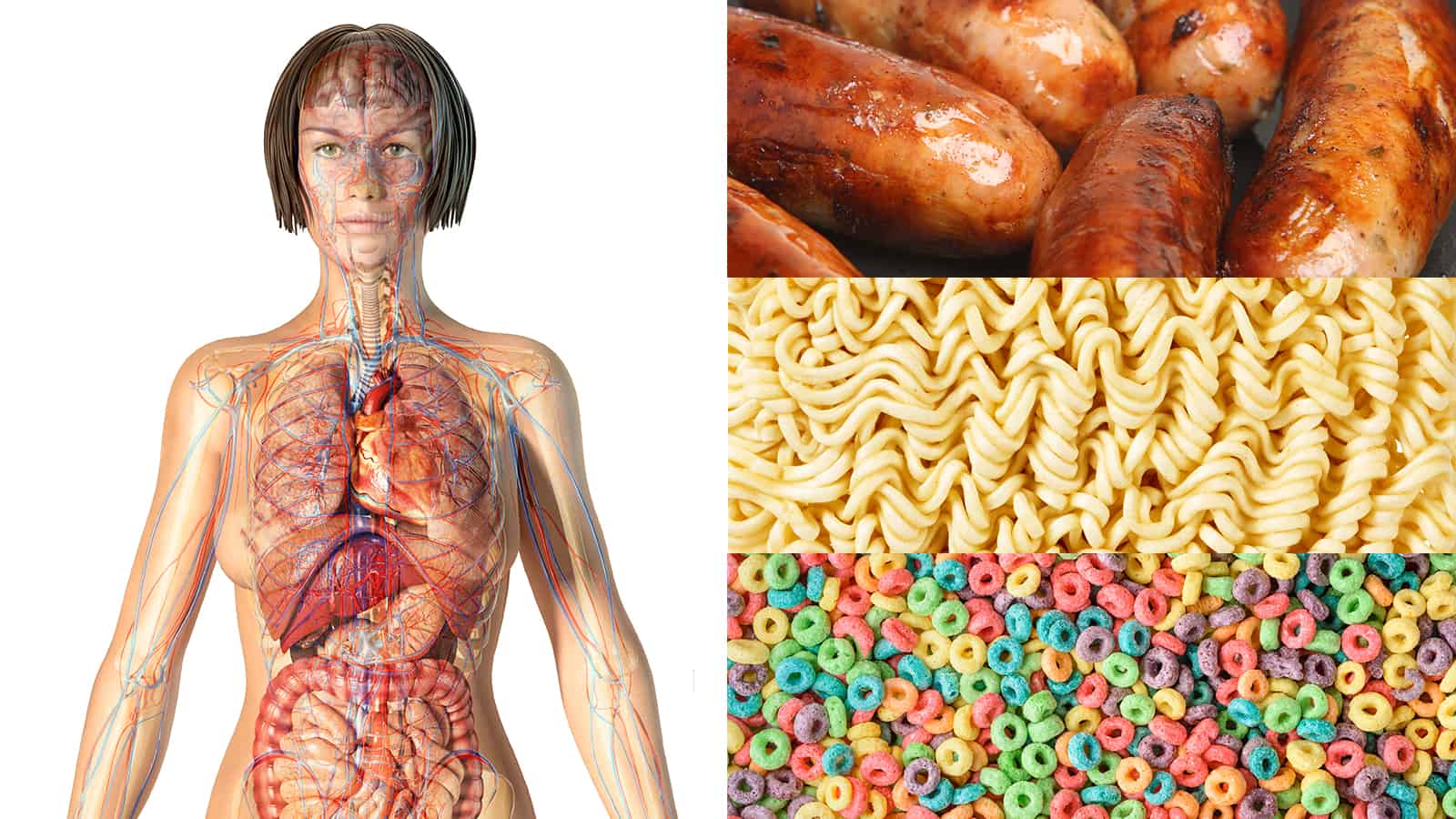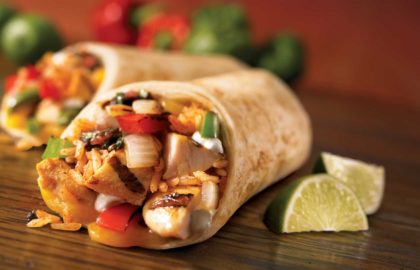Dietitians know better than the average person just how accurate the adage is–you are what you eat.
Eating well ensures that you lead a healthier, more active lifestyle. Thus, it may help you live a longer and more productive life.
The question is–do you want a healthier diet and lifestyle? Learning how to make better food choices is crucial for your weight loss goal. Here are 30 foods that dietitians recommend that you avoid.
30 Foods That Dietitians Will Never Eat
1. Sausages
Most sausage is a mixture of pork, a lot of fat, and spices. If that were all, an occasional small serving wouldn’t be wrong. The problem with most processed meats like sausage is that manufacturers usually use nitrates as a preservative.
Once these chemicals get into your system, they break down into substances that have been linked with causing cancer. This popular breakfast meat is also loaded with salt, which can raise your blood pressure and cause other health issues. Sorry, pork isn’t the other white meat.
2. Sugary Cereals
Studies show that most pre-sweetened cereals contain nearly a tablespoon of sugar per serving, and the ones geared toward children often have 60 percent more sugar than ones marketed to adults. Your best option is a low-sugar cereal or good old-fashioned oatmeal.
3. Artificial sweeteners
The sweet debate of sugar vs. artificial sweeteners has been raging for decades. When dietitians realized that people who consumed too much sugar gained weight and was prone to diseases, the search was on for a sugar substitute. However, these lab-created substitutes create a different set of health hazards.
For years, scientists have warned consumers of the cancer risks from eating saccharine. Once thought the miracle sweetener, aspartame soon fell from grace when researchers discovered its potential health threats. Most dietitians recommend that you kick the fake sweeteners and apt for a bit of honey, maple syrup, or agave nectar in moderation.
4. Microwave popcorn
Even if you purchase a brand of microwave popcorn that has no salt, butter, or other toppings, you could be risking your health. When the packaging is heated in the microwave, it can produce a cancer-causing compound called PFCs. If you want some tasty popcorn, pop some fresh on the stove or the hot air popper and jazz it up with flavorful herbs or spices.
5. Margarine
While it may be lower in saturated fats, margarine still has as many calories and fat as pure butter. Most of this butter substitute’s fat is trans fats, which are worse for your body than the saturated fat in butter. At the very least, choose a brand with the least trans fats, or splurge on the occasional dab of butter.
6.Processed Deli Foods
Processed meat and other deli specialties are far from their original form. Most of the meats have been processed with artificial fillers and preservatives, which can cause heart disease or cancer. Choose unprocessed lean meats and whole foods for a healthier and safer option. For example, you could bake a whole chicken on Sunday afternoon, slice it nice and thin, and enjoy ready-made sandwich meats for a couple of days.
7. Frozen Dinners
Convenient doesn’t always mean healthy. Today, even many of the frozen dinners labeled “healthy” are loaded with preservatives and may have as many calories and fat as the regular ones. For quick dinner ideas, freeze your healthy entrees and sides.
8. Canned Cheese
No one doubts that canned cheese is fun to spray on crackers or right in your mouth if you’re a kid (or a child at heart). However, many things shouldn’t come in a can, and cheese is one of them. Not only is the canned variety loaded with sodium, but it is chock full of chemicals and preservatives that aren’t good for anyone.
9. Hotdogs
Hotdogs may be an integral part of Americana cuisine, but you’ll not see them on any list prepared by dieticians. Most hot dogs are made with scrap meat cuts, too much salt, and harmful nitrates.
Studies show that kids who eat too many of these franks have a higher risk of leukemia. If you crave hot dogs, make sure to choose a brand that is 100 percent beef with no fillers or artificial ingredients.
10. Ramen Noodles
The dried, crunchy noodles in plastic wrap that are dirt cheap at the grocery store aren’t even close to the traditional version from Japan. This staple of new college students may look healthy and is easy to cook, but the noodles are high in fat, and the questionable spice pack is mostly salt and MSGs.
11. Fruit Yogurt
Wouldn’t dietitians rather you have a tasty fruit yogurt than sugary cereal for breakfast? You may be surprised that there’s not much of a difference. Most brands of fruit yogurt use sugar-laden jam rather than whole fruit, and you’re not doing yourself any good by consuming it. Try plain yogurt and fresh fruit instead.
12. Soda
Did you know that many of your favorite carbonated beverages can contain up to 11 teaspoons of sugar per 12 ounce can? Most have a whopping 185 empty calories, plus artificial colors and ingredients that aren’t good for you. Water is always best, even if you must drink some sparkling water with a twist of lemon.
13. Diet Cola
If you ditch the sugary pop for a diet soda, shouldn’t it be better for you? Diet cola may have zero calories, but the artificial sweeteners have been linked with causing cancer. Additionally, countless studies have suggested that drinking diet pop may make you gain weight.
14. Canned Fruits in Syrup
Enjoy fruit as Mother Nature intended, sweet and juicy on its own. Why ruin it with a puddle of high fructose corn syrup that can contribute to obesity and diabetes? If you purchase canned fruit, dietitians suggest that it’s canned in water or no-sugar-added fruit juice. Canned fruits in syrup are not healthy at all.
15. Wheat
For most people, eating natural wheat products in moderation is okay. However, some people have an intolerance to gluten, the protein found in wheat. Talk to dietitians about other options if you have this condition.
16. Icing with Food Coloring
Everyone deserves a modest piece of cake every once in a while, but watch the colored icing. Preliminary research suggests that icing with food coloring may be linked with hyperactivity in children and some forms of cancer in adults. Better yet, try a little cake without the sugary topping.
17. Sugar-Free Treats
Today’s market is brimming with sugar-free treats for dieters. Shouldn’t you eat them without guilt? If you read the labels, you’ll find that most have as many calories as their sugary counterparts, as well as extra sodium and harmful sugar substitutes. Look for natural alternatives to sweet treats.
18. Skim Milk
Do you buy skim milk to lower your daily fat intake? A glass of whole milk only has about 12% of your daily fat recommendations, and it keeps you satisfied longer. A diet too low in fat can make you crave an abundance of carbs and sugar, leading to heart disease and diabetes.
19. White Rice
There’s a reason why dietitians recommend brown instead of white rice. The white variety is processed and bleached, which depletes much of its beneficial fiber and nutrients. Plus, brown rice has a delicious nutty flavor that goes well with any rice dish.
20. Sports and Energy Drinks
One glance at the label of popular energy drinks, and you’ll be shocked at how much sugar and caffeine they have. Some sports drinks have an overload of herbal supplements and vitamins and can often do more harm than good. Instead, drink fresh water or a homemade smoothie and pass on the sports drinks.
21. Sushi
Not all sushi is nixed on dieticians lists of healthy choices. Be aware of what fish you are eating, because shark, marlin, swordfish, and some mackerel might contain toxic levels of mercury. Choose tuna, salmon, and veggie sushi to be on the safe side.
22. Pancake Syrup
Pancake syrup may taste a little like maple syrup, but it’s just artificially flavored high fructose corn syrup. It is high in empty calories and can make you crave more sugar. Pure maple syrup is a better sweetening option in moderation.
23. Canned Soup
Perhaps nothing is more comforting than a steaming bowl of soup on a chilly evening. Treat yourself to homemade for a tastier and healthier dish. Canned soup usually has too much sodium and other artificial ingredients that you don’t need. Instead, fix a big pot of soup to enjoy over your weekend, and portion leftovers into freezer containers to enjoy later.
24. Coffee Creamer
Do you enjoy coffee with cream? Don’t be surprised if dietitians steer clear of coffee creamer. These “non-dairy” products have sugar, trans fats, and corn syrup, all of which are bad for your heart and can lead to diabetes. A little bit of real cream in moderation is your best option, or learn to enjoy black coffee.
25. Fast Food Cheeseburgers
Fast food cheeseburgers may be as American as hotdogs, but they can wreak havoc on your health. One can have up to 14 grams of fat, not including the high calorie and carb content if you crave a cheeseburger, grill one at home and eat it with veggies and no bun.
26. French Fries
Who can have a burger without fries? The classic darling of fast food can be the worst when it comes to fat grams and sodium. Did you know that you can bake crisp fries in your oven and use fresh herbs and less salt?
27. Fruit Juice
Wouldn’t you think that fruit juice would be better to drink than soda? Not necessarily, because even 100 percent juices can pack a lot of fructose, a natural sugar that can build up fat cells in your abdomen. For a kick of fruit, add a few berries or citrus slices to your water.
28. Canola Oil
While canola oil may be better for you than lard or other cooking oil, it’s not necessarily the best. Remember that canola oil is still a hydrogenated oil refined with chemicals that can cause inflammation and some forms of cancer. Your better option would be olive or grapeseed oil.
29. Red Meat
Dietitians may approve lean red meat in moderation. However, there are still concerns in the medical world about the unhealthy saturated fat in red meat and added hormones. Try to keep it at a minimum and eat white meat, fish, or vegetable proteins.
30. High Fructose Corn Syrup
Did you know that this corn-derived sugar has been shown to cause inflammation in the body? When your body is inflamed, you are more susceptible to diabetes, heart disease, and even cancer. It’s best to eliminate it from your diet. Choose natural sweeter (think honey) instead!
Final Thoughts on Eating Like a Dietitian
It’s essential to eat a balanced diet every day and limit things like sausages, French fries, sugary cereals, processed deli foods, and ramen noodles. When you learn healthier options, you can plan tasty meals for the whole family. After all, you are what you eat.






